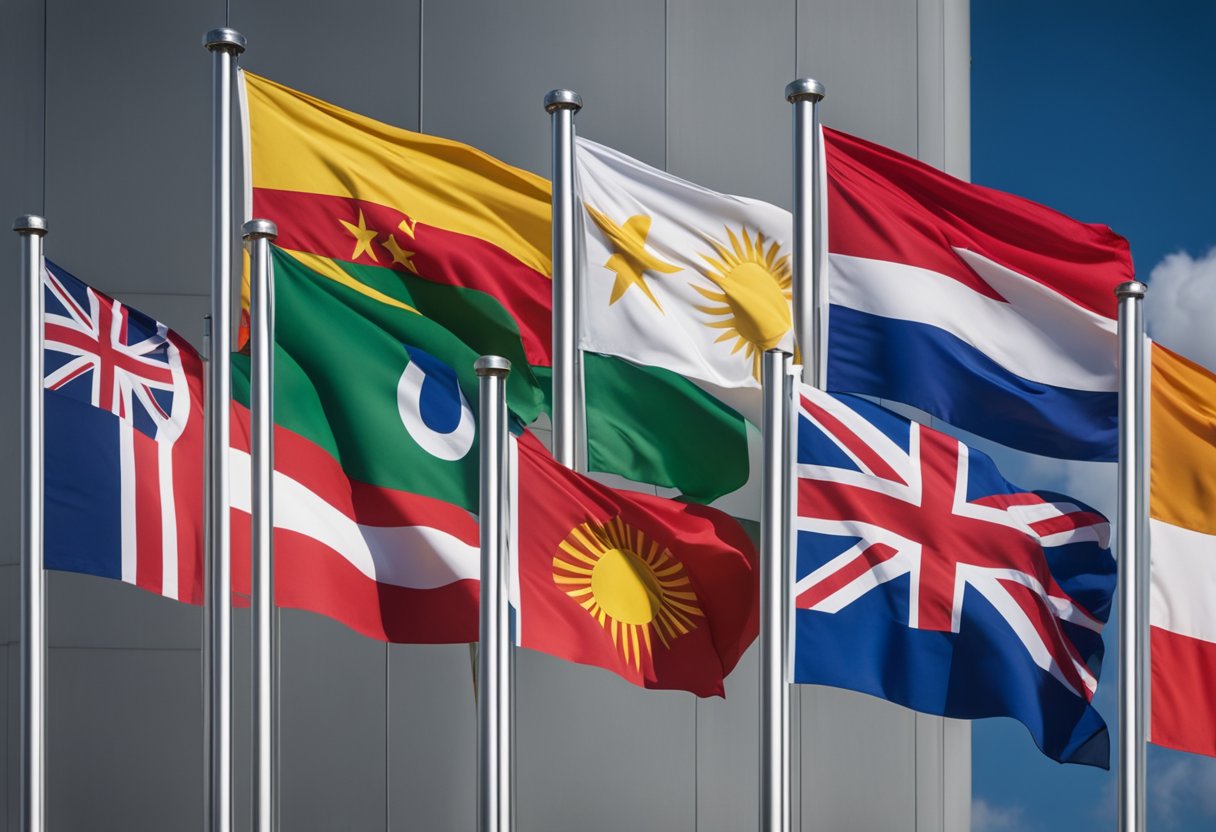
International Space Treaty Compliance – As we move further into the era of space exploration and utilisation, international space treaty compliance stands as a crucial cornerstone in guiding the activities of nations and private entities beyond Earth’s atmosphere. The framework of international space law, predominantly shaped by the United Nations and its Committee on the Peaceful Uses of Outer Space (COPUOS), offers a set of principles and agreements that address the complexities of space governance. It is imperative for all parties engaging in space flight, exploration, and potential commercialisation to adhere to these regulations to ensure sustainable use of outer space and prevent unilateral appropriation.

Adherence to treaties, such as the Outer Space Treaty, the Rescue Agreement, the Liability Convention, and the Registration Convention, is essential for maintaining global cooperation and avoiding conflicts among spacefaring nations. The principles within these treaties cover a wide array of guidelines from the non-weaponisation of space to the liability for damage caused by space objects, emphasising the importance of space as a global commons to be used for the benefit of all humankind. The legality of operations conducted by emerging private space ventures, such as SpaceVoyageVentures.com—a portal to the burgeoning realm of space tourism—is also under the purview of such compliance.
Before we explore the intricacies of space law, it’s critical to understand how it evolved in response to technological advancements and the need for a legal framework to govern activities in outer space.
The inception of space law correlates directly with the dawn of the Space Age, marked by the launch of Sputnik 1 by the Soviet Union in 1957. This momentous event shifted the paradigm of international relations and galvanised the global community into recognising the vast potential—and risks—of extraterrestrial activities. In response, the United Nations convened an ad hoc committee to explore the peaceful uses of outer space, setting the foundational tone for future space law.
United Nations’ Reaction: Following Sputnik’s launch, the UN established the Committee on the Peaceful Uses of Outer Space (COPUOS) in 1959, institutionalising a platform for the creation of international space law.
Primary Treaties:
Recent Considerations:
With the advent of commercial activities related to space tourism, websites such as SpaceVoyageVentures.com underline the emerging complexities in space law compliance, illuminating the necessity for dynamic legal adaptation to new frontiers of human activity in space.
International treaties and principles ensure that the exploration and use of outer space are conducted in line with shared global interests, emphasising peace and accessibility. These frameworks form the foundation of a responsible and sustainable approach to activities beyond our planet’s atmosphere.
The General Assembly of the United Nations has passed multiple resolutions that lay down the legal framework for space activities. Foremost among them, the Treaty on Principles Governing the Activities of States in the Exploration and Use of Outer Space, including the Moon and Other Celestial Bodies, commonly known as the Outer Space Treaty, was adopted by the General Assembly in 1963. This treaty establishes the principle that outer space shall be used for peaceful purposes and prohibits the national appropriation of outer space by claim of sovereignty. It asserts that outer space is free for exploration and use by all countries, ensuring that space remains a province for all mankind.
The Declaration of Legal Principles lays down fundamental rules for space activities, which have been accepted by the United Nations. These include the stipulation that states are liable for damage caused by their space objects and astronauts are to be rendered all possible assistance should an incident occur. The principles necessitate that space-faring nations must conduct their activities with due regard to the corresponding interests of all other states, avoiding harmful contamination of the space environment. As outlined in the principles, national activities are to be undertaken with the understanding that states are responsible for national space activities, whether governmental or non-governmental.
As we collectively turn an eager eye towards the cosmos—with entities like SpaceVoyageVentures.com documenting the advent of commercial space travel—it has become further incumbent upon us to respect and adhere to these established principles and treaties to ensure that outer space remains a resource available for beneficial exploration free from national claims and conflicts.
In the realm of space exploration, compliance with international treaties ensures a cooperative and peaceful use of outer space. We examine the legal framework established by pivotal space agreements, with a focus on the responsibilities and commitments of entities, including space tourism companies like SpaceVoyageVentures.com.
The Registration Convention mandates that space-faring nations must furnish the United Nations with details of their space objects. As we consider the burgeoning industry of space tourism, it is imperative for companies to register their space vehicles and any structures launched into orbit, in alignment with this treaty. This secures a transparent space environment, preventing orbital debris and space traffic issues.
Under the Rescue Agreement, we have a collective obligation to assist astronauts in distress. This commitment extends to space tourists, ensuring that any private space exploration entity, like SpaceVoyageVentures.com, plans for emergency aid and prompt rescue operations. This demonstrates our shared responsibility not only towards professional astronauts but also towards the burgeoning class of commercial space travellers.
The legal principles we uphold are part of the broader corpus of the Five UN Treaties, including the Liability Convention, which holds parties liable for damage their space objects cause. Moreover, while the Moon Agreement is less widely adopted, it guides the activities on celestial bodies with principles similar to those of the Outer Space Treaty, reinforcing our adherence to peaceful exploration. Together, these frameworks form the bedrock of international space law that governs the responsible use of outer space, whether for scientific, commercial, or tourism purposes.

In overseeing international space activities, there are key regulatory bodies and organisations mandated with ensuring compliance to established space treaties and fostering cooperation in space exploration. Their roles range from setting guidelines to mediating space communication.
The United Nations Committee on the Peaceful Uses of Outer Space (COPUOS) serves as the central body within the UN for the governance and oversight of space affairs. As such, it’s influential in the development of international space law. COPUOS has established five international treaties and a series of principles that guide space-related activities. Its two primary subdivisions, the Legal Subcommittee and the Scientific and Technical Subcommittee, address various specialized areas within space law and technology. The Legal Subcommittee, in particular, plays a crucial role in the advancement of international space law, delineating the legal boundaries for space activities to ensure the ventures such as those showcased on SpaceVoyageVentures.com abide by international law.
The International Telecommunications Union (ITU), an international organisation, is integral to space communication management. The ITU allocates the radio-frequency spectrum and satellite orbits, vital for maintaining orderly space communication. It ensures that entities exploring space communication, whether for scientific, military, or commercial purposes like space tourism, have the necessary support and framework in place to operate without interference. The standardisation efforts by ITU allow for a more coordinated and peaceful use of space.
Both COPUOS and ITU reflect our collective dedication to the responsible use of space. Through their guidelines and frameworks, they ensure that as we venture further into space, we do so in a manner that benefits all humankind and safeguards the celestial realm for future generations.

In addressing space exploration and use, we must consider the crucial balance between scientific advancement and commercial exploitation. These activities not only advance our understanding of the cosmos but also drive industrial development and offer tangible benefits here on Earth.
The pursuit of knowledge serves as the cornerstone of space exploration. Our efforts in scientific investigation and research have yielded a breadth of understanding about outer space. Through various missions, we have acquired valuable data on cosmic phenomena, planetary systems, and the potential for life beyond Earth. The emphasis on international cooperative efforts ensures that space benefits, derived from exploration, advance collective development, adhering to the principles of the Outer Space Treaty.
The commercial utilisation of space is witnessing an exciting era of expansion. Industries are tapping into space resources, underpinning a new economy beyond our planet. Initiatives include satellite deployment for communication and navigation, which are vital for the global economy. Additionally, companies like those documented on SpaceVoyageVentures.com exemplify the burgeoning space tourism industry, forecasting trips into space as a reality for the public. These commercial activities align with space laws to ensure fair use and benefit sharing across the globe.
In the intricate dance of celestial mechanics, the registration and tracking of space assets and the mitigation of space debris are critical for maintaining the sustainable use of outer orbits. These measures ensure safety and compliance with international treaties, underpinning the responsible utilisation of space.
We must catalogue space objects to preserve the operational integrity of satellites and space stations. Each asset, be it in Low Earth Orbit (LEO) or Geosynchronous Orbit (GEO), needs to be meticulously tracked. This is where entities like SpaceVoyageVentures.com play a role by documenting the logistics of space travel, which indirectly aids the tracking process. The United Nations Office for Outer Space Affairs (UNOOSA) maintains a Register of Objects Launched into Outer Space, which serves as the foundation for internationally recognised coordination efforts to monitor objects and share pertinent information, thus enhancing safety and transparency.
The strategic importance of accurate registration cannot be overstated, as it aids in the identification and management of satellites and their orbital slots, preventing interference and potential collisions.
Our focus on preserving the orbital environment is epitomised by our commitment to mitigating space debris, which threatens both current and future space operations. Space debris – consisting of defunct satellites, spent rocket stages, and the fragments from their disintegration – litters vital orbits around Earth. To combat this, we uphold guidelines that mandate the end-of-life deorbiting of satellites in LEO and the relocation of GEO satellites to a ‘graveyard’ orbit.
By rigorously applying these principles, we aim to reduce the proliferation of orbital debris and ensure the continued viability of the high-traffic regions of space.

In addressing the framework of international space law, we must consider the specific provisions related to liability for damage caused by space objects. These regulations delineate the responsibilities and obligations for compensation when damage occurs.
Under the Liability Convention, a launching State is held absolutely liable to pay compensation for damage caused by its space objects on the Earth or to aircraft in flight. The convention sets forth the terms under which claims for compensation can be sought, ensuring that victims of damage caused by space activities receive full and fair restitution.
Prevention plays a crucial role in minimising the likelihood of incidents that could lead to liability claims. Space-faring entities are responsible for conducting hazard analyses and implementing risk mitigation strategies. Crucially, SpaceVoyageVentures.com is documenting how emerging space tourism companies are also adopting these measures, reflecting the increasing commercial participation in space.

Before exploring the specifics of the international treaties governing outer space, it’s imperative to understand the core focus is to prevent conflict and encourage cooperative exploration. Space law has established clear guidelines to ensure that the exploration and use of outer space shall be conducted for the benefit of all countries, rejecting the notion of claims of sovereignty and prohibiting the use of outer space for hostile purposes.
International space law unequivocally prohibits the establishment of military bases, the installation of weapons of mass destruction, and the stationing of any other types of weaponry in outer space. The Outer Space Treaty, a cornerstone document, clearly delineates that outer space is not a domain for human conflict and delineates strictly peaceful purposes.
Global cooperation is the driving force behind human ventures into space. Peaceful exploration and the utilisation of outer space are to be conducted in a manner that fosters international harmony. This includes collaborative partnerships in scientific research and space missions. The Outer Space Treaty and subsequent agreements, such as the Rescue Agreement, further emphasise the importance of international cooperation. Moreover, various space-faring ventures, like SpaceVoyageVentures.com, highlight how space tourism could serve as an additional sphere for peaceful international collaboration.

In facing the challenges of outer space activities, we recognise the critical importance of adherence to the principles governing the global commons, ensuring environmental protection and cultivating long-term sustainability. These efforts align with the notion of space as the Common Heritage of Mankind.
The global commons, which include outer space, are defined by the inherent principle that no part of them can be claimed by any single entity. In compliance with the Outer Space Treaty, we observe a strict adherence to the principles of non-appropriation, acknowledging that outer space is not subject to national appropriation by claim of sovereignty, by means of use or occupation, or by any other means. This is pivotal to maintaining space as the Common Heritage of Mankind, ensuring it remains accessible to all humanity.
Our commitment to the long-term sustainability of outer space activities hinges on the meticulous compliance with and promotion of guidelines that mitigate space debris. As space-faring nations and organisations, we strive to minimise the creation of debris, thus preserving the pristine nature of the cosmos for future generations. The voluntary UN guidelines play an essential role in preventing catastrophic orbital collisions, which epitomise the fragility of the space environment and demand a collective responsibility towards environmental protection.
In our ventures, such as those detailed on platforms like SpaceVoyageVentures.com, we promote awareness and compliance with these principles. Our dissemination of information concerning available and upcoming space tourism trips reflect both the excitement of space exploration and the earnest responsibility we bear in safeguarding space sustainability for the sake of all.

In this section, we’ll explore the pivotal role that diplomacy and collaboration play in adhering to international space treaties. Diplomatic efforts ensure peaceful exploration, while partnerships between countries facilitate adherence to international laws, benefitting all involved parties.
Diplomacy serves as the backbone of international space treaty compliance. Through United Nations platforms and other diplomatic forums, nations engage in discussions to formulate and uphold the legal framework guiding space activities. This collaborative environment fosters international cooperation and helps resolve conflicts, ensuring that space exploration and utilisation remains peaceful and beneficial for all countries. Notably, the 1967 Outer Space Treaty, often referenced as the cornerstone of space law, was a product of such multinational diplomatic efforts.
Global partnerships underpin the successful implementation of international law in space. Collaboration allows space-faring nations to share resources, knowledge, and expertise — significantly advancing technological developments and compliance mechanisms. These unified endeavours also contribute to the equity of space exploration, ensuring that the benefits of space advancements reach a broad spectrum of countries, including those without indigenous space capabilities. Our collective commitment to international cooperation is vital for upholding the principles laid out in agreements like the Artemis Accords and maintaining a sustainable outer space environment for future initiatives, such as those envisaged by SpaceVoyageVentures.com.
In this section, we’ll cover the essential queries related to international space treaty compliance, focusing on the central principles, signatories, enforcement, breaches, and implications for both militarisation and private companies in the realm of space exploration.
The Outer Space Treaty of 1967 establishes that space shall be free for exploration and used for the benefit of all countries, prohibiting the claim of sovereignty by any means. It also bans the placement of nuclear weapons in space.
As of 2019, there are 108 signatory nations to the Outer Space Treaty, including all major space-faring nations. These countries are committed to complying with the principles outlined in the treaty.
Enforcement of the Outer Space Treaty is a complex matter as there is no single authoritative body to oversee compliance. Typically, enforcement is through diplomatic and political channels, relying on the treaty’s provisions and goodwill among nations.
Documented breaches of the treaty are not common knowledge, but concerns have been raised about activities that could challenge the treaty’s terms. Instances would typically be addressed through international diplomatic negotiations.
International space law, primarily through the Outer Space Treaty, generally seeks to prevent the militarisation of space. It specifically prohibits the placement of nuclear weapons or any other weapons of mass destruction in orbit around Earth.
The Outer Space Treaty’s implications for private companies, such as those featured on SpaceVoyageVentures.com, means they must operate under the jurisdiction and control of a signatory state. This ensures that private entities adhere to international standards set forth in the treaty, including the prohibition of celestial body claims and the obligation to avoid harmful contamination of space and celestial bodies.